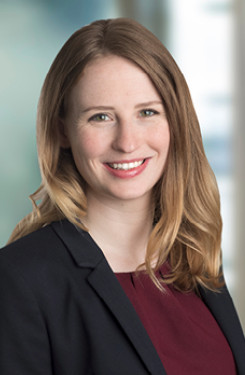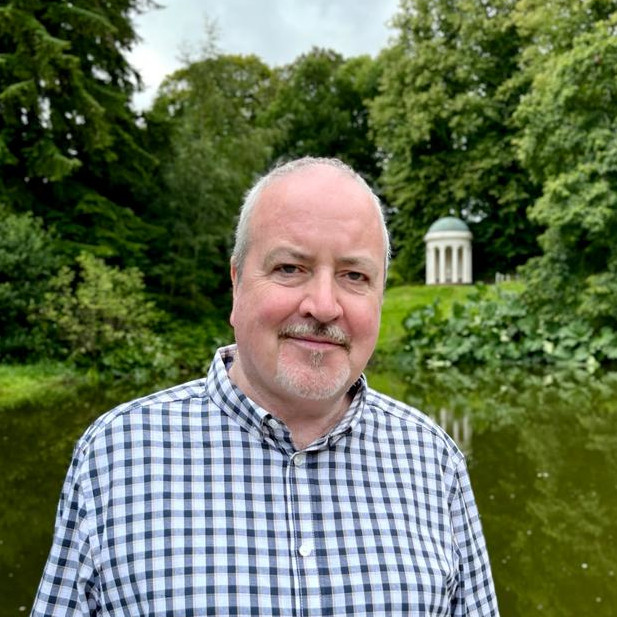Lawyer of the Month: Aoife Kelly-Desmond

Aoife Kelly-Desmond
In legal circles it’s a rare occurrence when a rising young lawyer moves from a corporate law firm that advises multinational companies, financial institutions and government to one which provides free legal advice to people who are homeless or at risk of homelessness.
This, though, was the decisive route that Aoife Kelly-Desmond took in March 2021 when she left A&L Goodbody and Matheson to become managing solicitor at Mercy Law Resource Centre (MLRC) in Dublin’s Cork Street.
“It was actually more about returning to values I’ve always held rather than a dramatic or sudden change of heart,” she says. “And it was an opportunity to help right what I see as some of the wrongs in our society.”
As a solicitor who graduated from University College Cork and has completed postgraduate programmes in law and business disciplines with Queen Mary University of London, the Leicester Castle Business School, DeMontfort University of Leicester and the United Nations Institute for Training and Research, Ms Kelly-Desmond brought with her wide-ranging legal and regulatory knowledge as well as a passion for social equality.
It’s clear that in current circumstances she will have to draw on both. It was recently reported that the number of people in emergency accommodation across Ireland had reached almost 11,000 in September, the highest number ever recorded and a 1.6 per cent increase on the previous month — a situation that housing minister Darragh O’Brien said was “very challenging”.
Further, in its 2021 annual report published last month, MLRC reported an increase of more than 180 per cent in queries from people who have been refused access to emergency homeless accommodation, having received more than 2,000 phone calls during the year and assisted 503 individuals and families at risk of homelessness.
The centre also acts for many ethnic minority clients, including members of the Traveller community and people of Roma ethnicity, and last year published a report entitled ‘Minority Groups and Housing: Barriers to Access’ which highlighted the legal barriers that existed and made practical recommendations for reform.
From Ms Kelly-Desmond’s close-up view, it is “certainly quite a dire time for anyone who has any sort of housing instability — but having said that we are still taking on cases and still getting results for people”.
MLRC is an independent law centre, registered charity and company limited by guarantee and was set up in 2009 as a volunteer service by the Sisters of Mercy, who had identified that there was no free legal service that dealt exclusively with homelessness and social housing issues and no way for people thus affected to access free legal aid.
“When the organisation was conceived, it was hoped that it might be needed for about five years. Unfortunately, the crisis has continued to worsen,” says Ms Kelly-Desmond. It is a crisis, she adds, that affects every aspect of housing and there are now six full-time staff at the centre, though still with some volunteer help.
MLRC is quite prepared to be vocal in its support of disadvantaged people in the community. In September this year, while welcoming many of the initiatives in the Irish government’s Housing for All strategy — in particular, the commitments to end homelessness by 2030 — Ms Kelly-Desmond said that those in precarious or grossly unsuitable accommodation simply cannot wait for 2030.
“Urgent, targeted action underpinned by a rights-based approach is essential to alleviate the burden of homelessness and housing insecurity on the most vulnerable in our community,” she says.
“Our private rental market is collapsing which is causing many people to face homelessness who never were before — and is also blocking off the main route that was open to people to exit homelessness.”
In addition, there has not been enough social housing built in the country for a long time. “That was a policy decision during a time that has seen an increase in population so while there are several aspects to the problem, we remain focused on the specific, legal aspect of these situations,” Ms Kelly-Desmond says.
“What often gets overlooked is that people have fundamental rights regarding how they’re dealt with by the State — and their access to the sort of services they’re entitled to expect. So, our job is to try to ensure that those standards aren’t slipping in a time of crisis, and that where possible, we can hold institutions to account,” she adds.
She points to the fact that queries regarding the issue of people not even being able to access a bed for a night have themselves dramatically increased over the past year. “The solution however doesn’t just mean adding more and more emergency shelter beds; rather the solution is to provide enough housing so that people don’t need to go into them, or if they do they can get back out of them very quickly — and it’s the government’s job to lead on this issue and implement the solutions,” she stresses.
Meanwhile, she says her background in commercial law was useful experience: “I graduated from UCC in the absolute depths of the last recession and while many of my peers were emigrating, I wanted to stay here and qualify as a lawyer. The clearest, best defined path was into commercial law as these firms have very structured graduate programmes during which you receive a very good legal training and are also paid — which had obvious appeal for a broke student!
“But I’ve always had an interest in pro bono work: I was in New York at a law firm for a summer and whereas the pro bono culture here is relatively new, it’s much more embedded there and it was inspirational to see lawyers in a major Manhattan firm which charges huge fees doing free work for someone who may have been dismissed from their job and really needed help.”
She has also been on the board of Plan International (a charity which advances children’s rights and equality for girls) for the past five years. “When it came to the point where I was more interested in doing what I was doing outside my day job than the day job itself it was time to make that leap,” she explains. “So when this opportunity at MLRC came up — and they don’t often occur — I just grabbed it.”
Originally from Cork, she now lives in Dublin with her husband and Digby — a dog she describes as “our pride and joy” — and while a self-confessed workaholic, her extra-curricular enthusiasms are travel and spending time with her family. Her main passion, however, remains addressing the challenges and inequalities caused by Ireland’s housing crisis.
“Many our clients have been banging their heads off the wall of bureaucracy for years, have been bounced around a lot of different services and haven’t been able to get a straight answer from anyone,” she says.
“And having someone in their corner who can tell them what’s right and what isn’t right about how they’re being dealt with — or giving them advice that allows them the confidence to stand up to a public body can have a hugely positive impact on someone’s life.”












